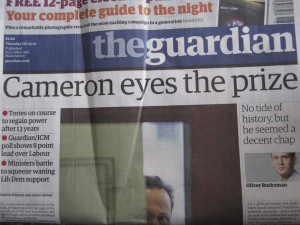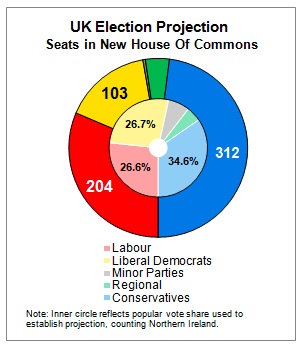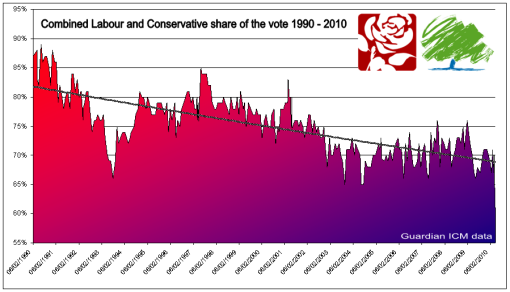The Washington Post has put Newsweek for sale. End of an era and all that. Marion Maneker of Slate has a sardonic take on it. Excerpt:
When Newsweek repositioned itself last year as an American version of the Economist, the strategy was built upon a fatal misreading of the British magazine’s success. Over the last decade, as the weekly went from outdated vehicle to dead man walking, all eyes turned to the Economist. The magazine was the world’s unicorn: It had growing circulation in the United States, and it did not depend upon middlebrow trend-mongering or expensive writers with big egos who sucked the air out the room. Plus, this mythical beast appeared every week in the mail.
Much was made of the Economist’s intellectual appeal and its point of view. But the magazine offers the perspective of a member of the global financial class. The growth of that group—especially in the United States—has fueled the growth of the magazine. It gives the banker, lawyer, and businessman easy access to the world’s business and political news. It’s the first global magazine. And it has taken advantage of its long history, unique voice, and international position at the heart of London’s banking community to tap into the U.S. audience. With its anonymous, opinionated tone, it plays well to sheepishly provincial Americans. People subscribe to the Economist the way parents once bought expensive sets of the Encyclopedia Britannica. It’s an investment in the hope for future success.
You can’t emulate that.
LATER: Desmond Hanlon pointed me to James Fallows’s piece in The Atlantic in which he argues that
At least for print subscriptions, there appears to be a natural limit to the audience for different kinds of magazines. Let’s think of these in big, order-of-magnitude blocks. All figures here are approximate but true to the general pattern.
In their heyday, the likes of TV Guide and Reader’s Digest had circulations in the tens of millions. National Geographic has been over ten million.
The fallen giants — Look, Life, Saturday Evening Post — reached at their respective peaks somewhere between five and ten million.
At the other end of the scale, “opinion” magazines — The Nation, National Review, New Republic, Weekly Standard — seem to have a natural upper bound of around 100,000. For smaller political magazines, like my original employer The Washington Monthly, the upper-bound figure is more like 50,000.
The New Yorker‘s natural limit has appeared to be around one million; the Atlantic‘s, about half a million. Of course we all want to have ten times as many subscribers and readers as we do; and who knows, The Age of the Internets may make it all possible. The point for now is, there is a kind of natural matchup of magazine sensibility with audience size. (Eg, as shown by the categories for the National Magazine Awards.) And magazines that ignore this limit soon suffer; it’s like opening a 500-seat restaurant for a kind of cuisine that only 100 people are going to want to eat on any given night, or flying a 747 between Fresno and Bakersfield.
This brings us back to Newsweek. For the past generation or so, weekly news magazines have been set up for circulations of between about two and five million. US News on the low end, Time on the high end — but in all cases, the business logic of the magazines was based on this kind of scale. Rates for advertising; the kinds of advertisers they could attract; the staff they could employ; the kind of coverage and photography and design they would use. The Economist can do a very good business with a circulation of roughly half a million. Time and Newsweek and US News cannot. They’re built on a different scale. All the tech/death-of-media forces mentioned above have pushed the weeklies below their comfortable scale. Newsweek‘s redesign last year weirdly illustrated the predicament, by creating a more “interesting” magazine with a smaller natural readership.
I bet that most people who read the Atlantic, in print or online, thought that the new approach made Newsweek edgier, more provocative, more thoughtful, more original, and so on. More essay-type articles and cover stories; much less summing-up of the news. The Atlantic‘s audience would like this version of Newsweek better, because it has been more like the Atlantic — or the Economist, or the New Yorker, or the NYT Week in Review, or the New York Review of Books. These are all great publications. But none of them is going to have three million or more subscribers, which Newsweek‘s business model has historically been based upon. Newsweek became a “better” magazine – but a kind of magazine whose natural audience is smaller by definition. It would be as if McDonald’s or Applebee’s became a tapas bar — yet still needed to fill the same number of seats.





